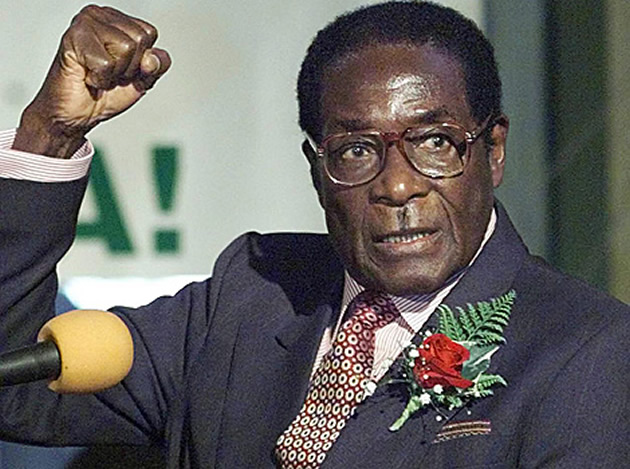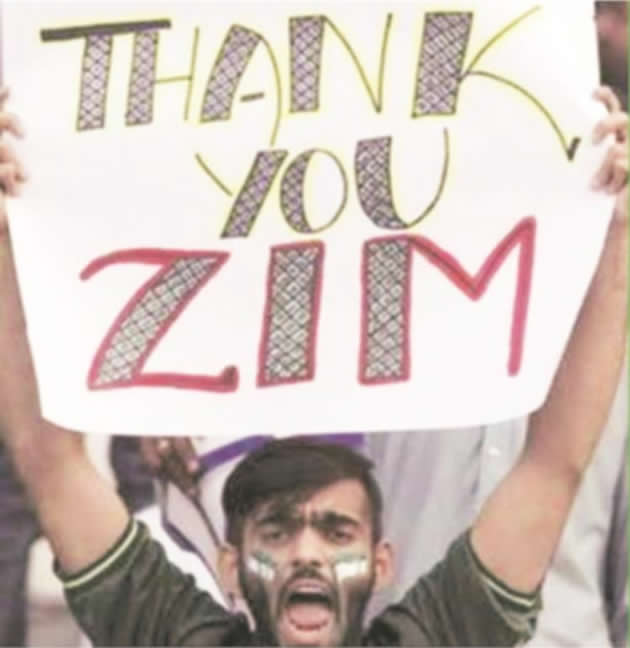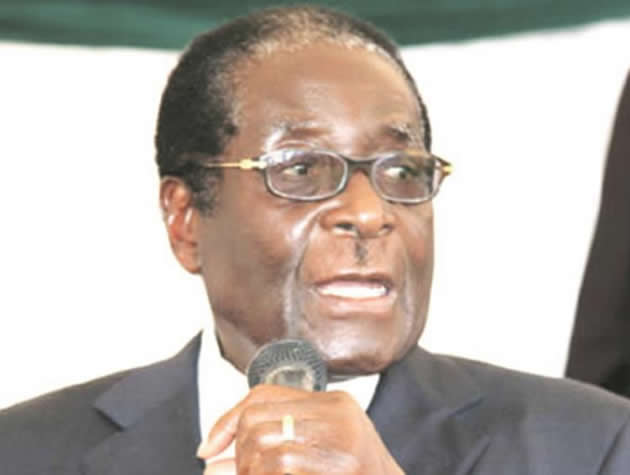Beneficiation answer for Africa: AU Chair

Lovemore Chikova News Editor
African Union chairperson President Mugabe has said time has come for African countries to industrialise their economies and move away from the continued exportation of their raw materials at very low prices for beneficiation and value addition in other continents.
In his speech to mark Africa Day yesterday, that was posted on the African Union website, President Mugabe said the raw materials usually returned to Africa as finished goods at very high prices.
Also read…
-
Harness resources for development
-
Africa Day: Economic emancipation a must
-
Convert Zim-Asset into national development plan
-
ZDTC gets new equipment
He said the continent should instead leverage the abundant and diverse resources for its benefit.
“Africa is richly endowed with vast natural resources which, if harnessed in accordance with our vision, Agenda 2063, will improve the livelihoods of the peoples of Africa, through the rapid eradication of hunger, poverty and disease,” said President Mugabe.
“As a Union, we must build an Africa that is prosperous, an Africa that is economically integrated and politically guided by the ideals of Pan Africanism, an Africa that subscribes to democracy, respects human rights, and respects the rule of law.
“We must have a peaceful and secure Africa, an Africa with its own cultural identity, common heritage and shared values, an Africa whose
development is based on the creativity of its people, particularly its youth and women.”
Early this year, Africa adopted its economic blueprint, Agenda 2063, which will be implemented in Five Ten-Year Plans.
Next month, the continent will adopt the first Ten-Year-Plan under Agenda 2063 at its mid-term summit in South Africa that will further expound on the development agenda.
“The AU Summit to be held in South Africa is a watershed summit in the sense that Africa will henceforth proceed in an integrated and planned manner,” President Mugabe said.
“The regional groups have already started to draw their development plans aligned to Agenda 2063. This is a welcome development.”
President Mugabe said it was heartening to note that the AU made great strides both politically and economically to create an environment that safeguards the future of Africa.
“In the economic sphere, the African Union remains focused on attaining economic integration of the continent, as defined in the Abuja Treaty of 1991,” he said.
“The Treaty remains relevant, as it recognises the efficacy of economic integration as a necessary strategy for sustainable socio-economic development in Africa.”
President Mugabe said through the African Peace and Security architecture, the AU continued to work tirelessly, in collaboration with its partners, to foster peace and security across the continent.
He said the establishment of the African Standby Force, intended to guarantee peace and security on the continent, was more urgent and imperative.
“It is heartening and encouraging that some of our regional standby forces have now reached full operational capability,” he said. “We urge those who have not yet done so to redouble their efforts so that the African Standby Force is operationalised without further delay.”
President Mugabe said Africa needed to devise collective strategies and measures to overcome conflict, insecurity and terrorism.
“We, therefore, welcome the recent peace agreement in Mali and urge other conflict areas to lay down their arms and settle their differences through dialogue and negotiation,” he said.
“This is the only way to make lasting peace which is the essential ingredient to development and prosperity.”
President Mugabe was in Mali about a week ago as the AU chairperson where he witnessed the signing of a peace deal between the Malian government and Tuareg rebels.
The peace deal was being spearheaded by the AU.
President Mugabe said it was progressive that the AU had early this year resolved to address its over-dependence on international cooperating partners.
He said as the continent marked Africa Day, it was important to pay solemn homage and tribute to the founding fathers of the Organisation of African Unity, now the African Union.
“On 25 May 1963, these great visionaries took the historic stride and formed an institution that would be the vanguard of the African people’s aspirations for freedom, unity and solidarity,” he said.
“This day would not have been possible without the sacrifices of the founding fathers and those of the African heroes and heroines who fought to liberate our continent from the vestiges of colonialism, racism and apartheid. Today, we are free because of the sacrifices they made.”
President Mugabe hailed this year’s theme for the celebrations: “Year of Women Empowerment and Development towards Africa’s Agenda 2063”.
He said the choice of the theme was “quite deliberate and revealing”.
“It is for this reason that African leaders chose this theme in order to acknowledge the central role of women in implementing Agenda 2063 as well as to reinforce gains already made, and chart new frontiers for women, with the African Union playing an enabling role,” said President Mugabe.
“The African Union has taken a great leap in gender equality, specifically on women empowerment and development, out of the realisation that, women, the world over, are the cornerstone of stability and social progress.
“While women have made tremendous achievements, they sadly often remain unsung heroines. Women have left indelible marks in the history of the struggle against slavery, in the struggle for civil rights and in our wars of liberation.”
President Mugabe said it was good that in recognition of the role of women as a driving force for change and development, most African States had moved to mainstream gender issues into their national laws and development programmes.
“The efforts we have exerted are bearing fruit as we have recently seen women occupying important leadership positions,” he said. “We have had women elected presidents.
“Our continental body is being led by a woman, Dr Nkosazana Dlamini-Zuma. These are achievements which other regions still aspire to. While we appreciate these achievements, we must also accept that we need to do much more in the area of woman empowerment and development.”
President Mugabe said while the liberation agenda of the OAU/AU had largely been achieved, people should not forget about Western Sahara which is still fighting for its independence and self-determination.
Western Sahara has been occupied by Morocco since 1975 and decades later its people are still living in a state of siege and face appalling human rights abuses and repression.
In her message to mark Africa Day yesterday and also posted on the AU website, AU Commission chairperson Dr Dlamini-Zuma said the organisation had transformed from pursuing the struggle to liberate the continent and safeguard the independence of African States to one that facilitates work for a united, prosperous and peaceful Africa.
“Our Africa Day celebration is, therefore, facilitating and celebrating African narratives of the past, present and future that will enthuse and energise the African population and use their constructive energy to accelerate a forward looking agenda of Pan-Africanism and African Renaissance in the 21st century,” she said.
“We mark this Africa Day with much optimism. Africa has answered the clarion call to shape its own agenda for the people by the people.”
Dr Dlamini-Zuma condemned the recent xenophobic attacks in South Africa and said it was a blemish on the continent together with conflicts in Burundi, Central African Republic, Somalia, South Sudan and the Democratic Republic of Congo.
“The recent xenophobic attacks in the coastal city of Durban and in the economic hub of Johannesburg, is also one such blemish,” she said. “We take this opportunity to reiterate our condemnation of the unacceptable acts of violence that affected our brothers and sisters.
“No matter what the circumstances, such actions cannot be justified. No matter the frustrations, the loss of even a single life cannot be condoned.”








Comments